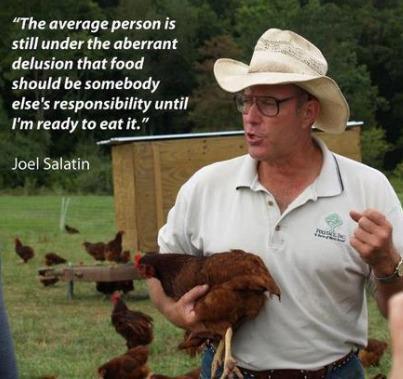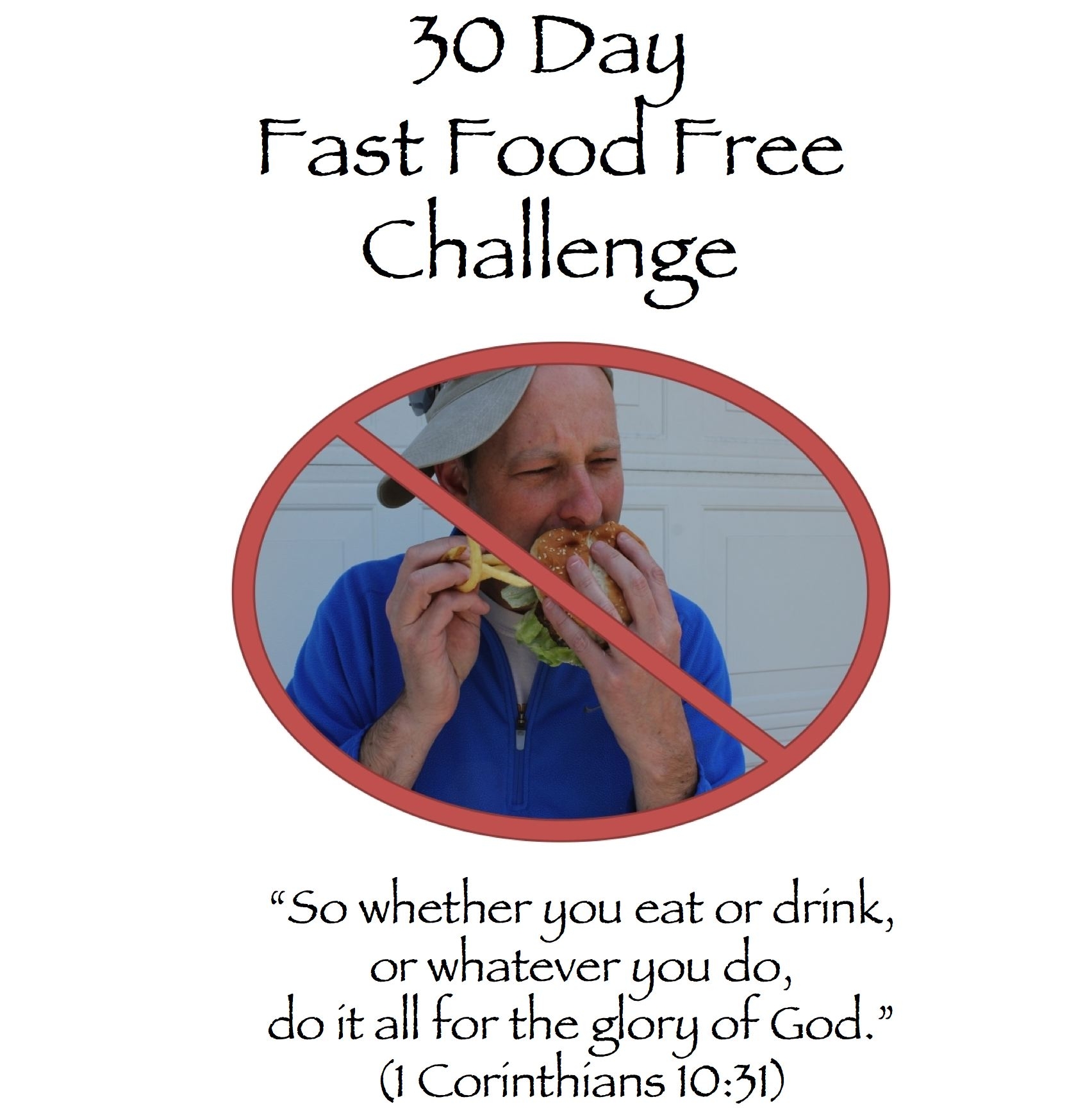Food: Perhaps the most important social justice issue of our time…
(Forgive us as we get a bit passionate about something we eat at least three times a day and think about more often than that: FOOD.)
If you’ve been reading this blog for any length of time, you know we are foodies. We have a disdain for fast food and fake food and anything Michael Pollan would call “edible food-like substances.” Our catch phrases are organic, sustainable, intentional, real and frugal. (Just take a look at our About page and you’ll see.) From a Christian perspective, the more I explore the Scripture the more I find that God really does care about our food choices and the whole food supply. It’s everywhere–from Genesis to Revelation! From a completely practical perspective, the more I learn about health and wellness, the more I find that you cannot divorce physical health from nutrition. We are attached to the earth (including our food, which comes from the earth) and our environment’s health is our health. Plain and simple.
At the same time I do not want to come across as some fanatical foodist who cannot enjoy a slice of cake at a wedding because it might be contaminated with artificial food coloring or non-organic wheat. That kind of food purity ignores the command in the Bible to refuse nothing received with thanksgiving. (1 Timothy 4:4) As with all things, we need to strike a balance and put everything in its proper context.
Recently I came across several different articles that made me profoundly sad. I’m sure the heart of the authors had no evil intent whatsoever. I think they were striving to strike a balance between judgmental food extremists who would rather offend the host at a party by refusing the food than risk coming in contact with something that wasn’t raw and vegan. I get that. I do. I’ve seen those (and may have been one of those) purists who see their salvation tied to their lunch plans. But the other extreme: that food choices do not have moral implications, that there is no harm in soda (so every who orders water just get off your high-horse), that there is no real difference between organic milk and “regular” milk, etc. is sorely misguided. Like it or not, what we choose to eat and drink and how we choose to do it can either give or withhold the glory of God.
“So whether you eat or drink, or whatever you do, do it all for the glory of God.”
(1 Corinthians 10:31)
Justice and Food
We propose that to truly fulfill the command to love our neighbors, we must be concerned with the land on which they live, the air of which they breathe, the food that sustains them and gives them health, and the earth that provides this all. Craig Goodwin writes, “We have a special commission as God’s people to care and advocate for the poor and…we can’t advocate for the poor in places like Haiti without addressing deforestation and sustainable agricultural practices. We can’t love our neighbors without also caring for the creation that sustains our neighbors with work and food and health. Loving our neighbor is an environmental act.” (Feed My People by Daja and Kristina)
When you realize that Monsanto patented seed and farming practices are ruining the soil in India, causing the land to literally reject the growing of food; when you realize that farmers in India–who formerly could support their families–are now committing suicide almost en masse because they are so indebted to a big corporation who will not even allow them to save their seeds and feed their children; when you see entire dead zones of land that will no longer produce food; when whole crops fail putting entire communities, countries or continents on the brink of starvation; when farmers in Third World Countries are growing mono-crops to ship to the US because we insist that we have tomatoes in January and pears in June and bananas year around without fail and these farmers cannot feed their own families; at the same time you realize that American farmers are growing government subsidized crops that are supposed to be shipped to Asia and Russia only to be told that the recipient countries will no longer accept any imports of our inferior GMO products; when multinational companies practically force formula feeding on women in foreign countries, forcing children to consume chemical laden anti-milk mixed with contaminated water; when you realize your favorite soda tests their flavorings on aborted fetal cells….well, you start to realize that there are real moral repercussions to the choices in the Supermarket as you look between two almost identical packages of zucchini–one grown locally and organically and one grown in South America. Our food choices affect real people, real farmers, real communities. Our food choices are often an act of social justice or lack thereof.
Shannon Hayes writes in her book Radical Homemakers, “Owing to this industrialized global food production system, over the last 100 years, 75 percent of plant genetic diversity has been lost and 30 percent of livestock breeds are at risk of extinction. 75 percent of the world’s food comes from 12 plants and only 5 animal species, making our global food supply highly vulnerable to disease and famine.” While this affects all of us, it particularly affects the poor who may not be able to afford or have access to organic food sources. In addition, it is the laboring class who has the greatest exposure to harmful substances and practices in the production of our food. If one of our major crops fail, it will affect all of us, but especially those already living on the brink of destitution.
Abdicating Responsibility
The thing is, we are so detached from our food. To us food comes in cellophane and cardboard and is sold on squeaky clean store shelves. It was never living, breathing, connected to the earth. It never had a home, a personality or a life apart from my plate or fast-food wrapper. It never had a caretaker, a farmer, a rancher, and butcher. One blogger recently put it this way: “When I eat a burger, I am thankful I have food, and that I don’t have to go out and gut the cow myself. As I’m standing in the grocery store, I think of some of the poorest people in Nicaragua I’ve seen living and scrounging for food near the garbage dump. I get a bit upset at the arrogance that says the strawberries or apples or oranges stacked in heaping piles before me are “not good enough” because they are not organic.” The problem with this perspective is that someone did have to raise and slaughter that cow. And as you choose your packaged food you are contributing to those garbage dumps where people scavenge. At what price–physically, financially and emotionally were those strawberries, apples and oranges produced–by that farmer, whose land is being stripped up its bio-diversity, health being ruined from the Round-Up, water being polluted for the whole community–all because we insist on clean-appearing and uniform looking produce.
Joel Salatin writes in Folks, This Ain’t Normal “This magical, marvelous food on our plate, this sustenance we absorb, has a story to tell. It has a journey. It leaves a footprint. It leaves a legacy. To eat with reckless abandon, without conscience, without knowledge; folks, this ain’t normal.”
We submit that as thinking people, as responsible citizens of the world, as Christians, we reconnect our theology with our daily choices. We must take responsibility for our consumption. We must be intentional and painful-as-it-may-be pull our heads out of the sand. Our food choices do matter!
Wendell Berry writes, “Perhaps the greatest disaster of human history is one that happened to or within religion: that is, the conceptual division between the holy and the world, the excerpting of the Creator from the creation….and this split in public attitude was inevitably mirrored in the lives of individuals: A man could aspire to heaven with his mind and his heart while destroying the earth, and his fellow men, with his hands.” (A Continuous Harmony: Essays Cultural and Agricultural)
Does this mean that we become the worst versions of ourselves and become militant about never touching the “unclean”? No. We don’t think so. It does mean that we become conscious of our food choices, that we begin to really do the best we can, that we pray about the best options for our family. And this doesn’t have to break the bank, either. It means that when given a food choice we consider more than our own pocketbooks or immediate cravings. We consider the condition of the animal, the effect on the land, the life of the farmer. And we eat out of a place of gratitude and respect and not ambivalence.
None of us are perfect. We all have our “cheat” foods and we all fall short of eating for the glory of God. If anyone knows that, we do! (I just wrote this while snacking on dark chocolate covered almonds, of unknown country origin.) But, the fact that we fall short is no excuse for not striving to do better, be better, consume less, and live responsibly.
“A significant part of the pleasure of eating is in one’s accurate consciousness of the lives and the world from which food comes.” –Wendell Berry
Let’s face it. We all eat. The responsibility for the sustainability of our food supply, the condition of our farmland and farmers, and the care of the poor IS my responsibility. It IS your responsibility. If you eat, you have no choice but to care.
Food: It is a social justice issue at its core. And it’s something that should unite us all.
 (We invite you to explore this subject further with our FREE ebook: Feed My People–Ecology and the Food Movement For Christians.)
(We invite you to explore this subject further with our FREE ebook: Feed My People–Ecology and the Food Movement For Christians.)
(Linked to Foodie Friends Friday, From The Farm, Best Post of The Week, Encourage One Another Link-Up, Small Footprint Friday One Sharendipity Place Tasty Traditions, Backyard Farming Connection, Motivation Monday, Creative HomeAcre Hop Mostly Homemade Monday, Pin It Monday Hop! and Titus 2 Tuesday)
















Food is deeply related to human development and the way we produce what we eat and the things we eat not only speak of us and about our level of conscious but also have a deep influence on other people lives. We should be aware of the great importance of the decision making in this field, because it is not only related to our healh and welfare but also to the health and welfare of the planet
You are so right! It’s all connected.
Awareness is most important and we thank you for sharing this with Foodie Friends Friday.
I enjoyed this post, even though many of the ideas contained are unfamiliar to me. Now that I’ve been introduced to facts about Monsanto and overseas farmers, etc., I’m interested enough to do some more research. I’ll admit, I’ve not fully made up my mind about the whole foods movement, but it’s definitely worth thinking about. Thanks! I’m visiting from the Sharendipity Place link-up. 🙂
Thanks for stopping by! And thank you, even more, for taking the time to consider this important issue. A good place to start in understanding what is termed “the food movement” is our ebook, FEED MY PEOPLE referenced in the article or link on the sidebar.
If we can ever answer questions for you or engage in any further dialogue about food issues, we would LOVE to!
Thank you Daja for taking the time to share this with all of us. I’m like Jen above. You have definitely given us more to look into and think about. Looking forward to following and hearing more! Sue from t2
VERY powerful article. Thank you so much for sharing this. THIS is why I try to grow my own food and help others do the same. Education is so important! It’s why I blog, why I share on fb and started an entire fb page GMO Free Monsanto to help educate people on the dangers of “convenient foods.”
I would like to feature your post tomorrow at Back to the Basics since you shared this at The Creative HomeAcre Hop. Do you mind if I share a small “preview” from your post?
You can email me at mari_backtonature@yahoo.com
Thank you for sharing!!!
Thank you for featuring our post! Feel free to post a preview or quotes as long as they are linked back to the original article.
Glad to be in the fight with you! =)
I love this SO much! The words really ring true to me and I think you’ve put it together so well. I just watched the documentary, ‘Journey To Plant Earth’ yesterday (Narrated by Matt Damon – woot!) and it talks about how the issue of environmental degradation is, for the most part, being ‘exported’ to the third world which keeps them stuck in the sick cycle of starvation, inequality and violence. It really is sad how little people think about the consequences of what it takes to bring *insert said food of choice*.to their table. I’ll be the first to admit this guilt. But each day I try to educate myself that little bit more and to continue fighting the good fight, even if it is on my own plate. Keep up the good work!!
Thank you! Yes, the good fight on our own plates. That’s a great way to put it.
This was such a great post! Much of what you have stated is behind the reasons we have chosen to homestead. Thank you for sharing.
So true. It is absolutely an issue of social justice. And I had no idea about the aborted fetal cells being used to test flavorings. Clicking over there now. Ugh.